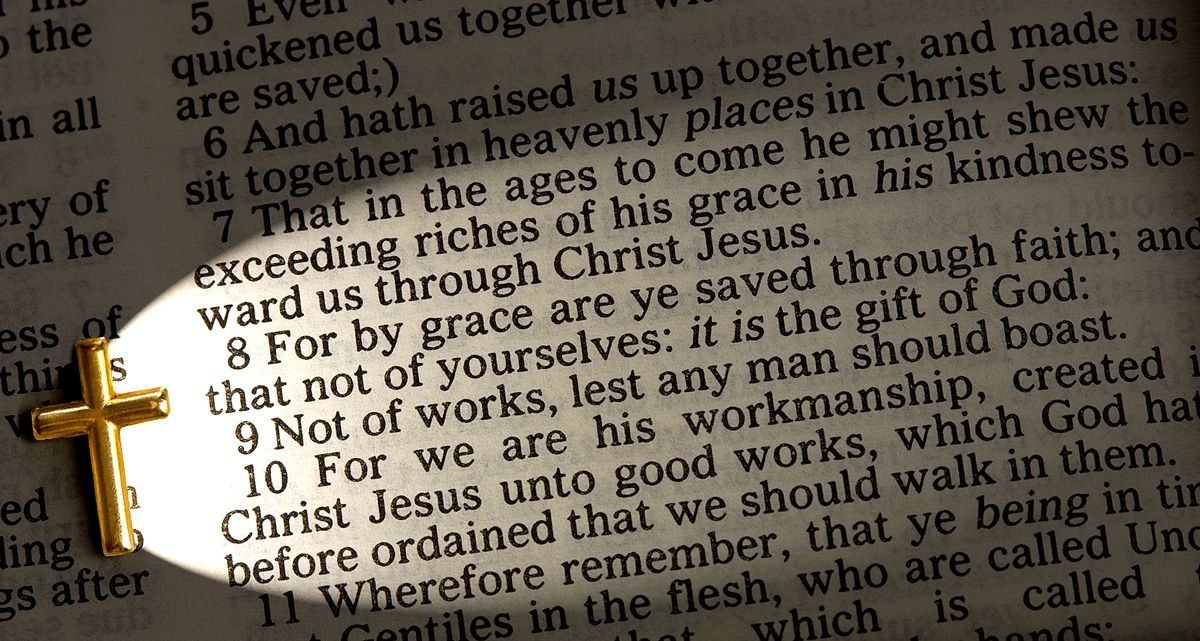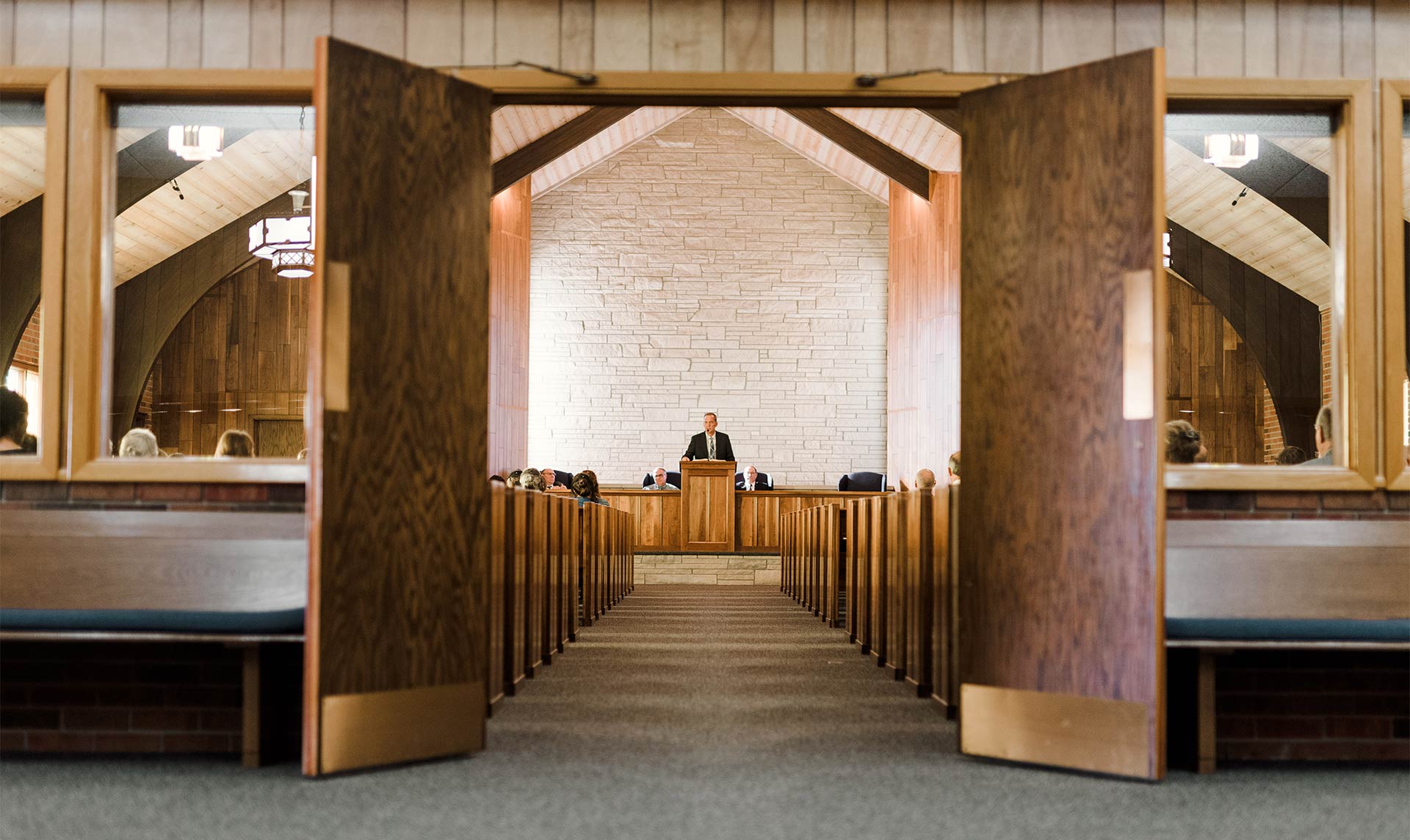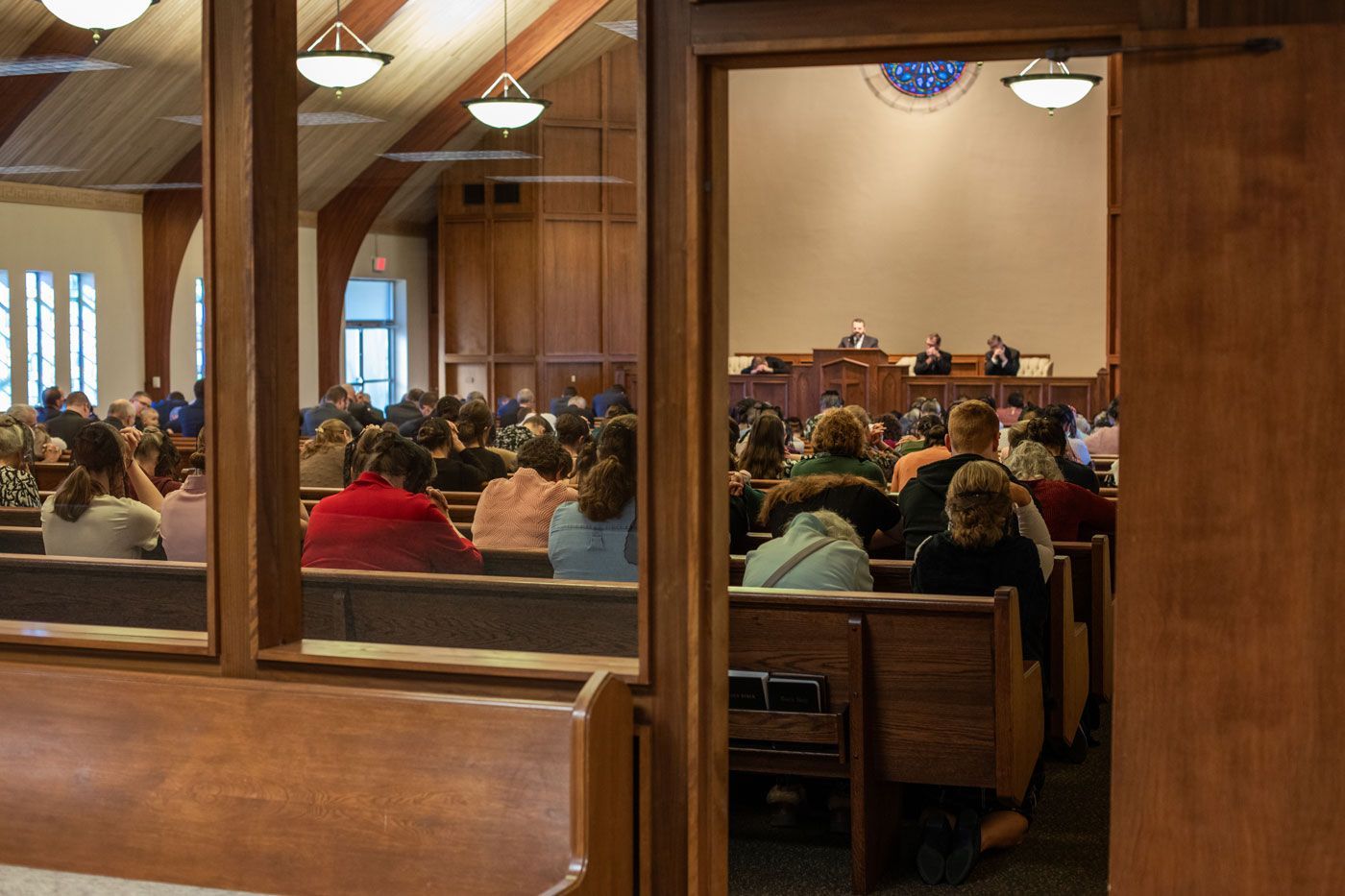Enduring difficult times
For thou hast been a strength to the poor, a strength to the needy in his distress, a refuge from the storm, a shadow from the heat, when the blast of the terrible ones is as a storm against the wall. Isa. 25:4

“When upon life’s billows you are tempest tossed. When you are discouraged, thinking all is lost.” The hymn, Count Your Blessings does not state, “if” you are tempest tossed, or “if” you are discouraged, but “when” you are tempest tossed, and “when” you are discouraged. As Christians, we are to expect that tempestuous times will come. Jesus asserted that we would have tribulation in this world.[1] Peter advised that we should not be surprised by fiery trials.[2] Paul warned that all who live godly in Christ Jesus shall suffer persecution.[3] And James stated that we are not called to avoid the tempests, but to joyfully endure them.[4] Yet, tempestuous times can lead to challenging crises of faith.
Life’s storms, like those observed in weather, often contain four elements: Conditions, Catalyst, Cloudburst, and Cleanup.
- In nature, conditions such as atmospheric instability and moisture lay the groundwork for a storm. Similarly, life conditions, including personality type, the influence of family and friends, unrealistic expectations, and misplaced or distorted beliefs can foster susceptibility to spiritual storms.
- A catalyst in weather can be as simple as the heating of the afternoon sun or as complex as the formation of a supercell. Correspondingly, a spiritual catalyst may be simple or complex. A variety of events – health diagnoses, family and relationship issues, career changes, personal failures, exposure to other world views, and many more – can set off a storm.
- Cloudbursts can be alarming, both in nature and in spirit. If we are not watchful, we may not sense a storm is brewing until it is suddenly upon us. With such spiritual torrents often come questions: Where is God? Why would God allow this? Who is God? Does God exist? We may find ourselves in a crisis of faith.
- When the storm is over, the cleanup phase begins. It requires effort to rebuild a damaged structure. The result may not look like it did before the storm and is often rebuilt to be stronger. After a spiritual storm, we can rebuild a more stable faith, ready to withstand future tests.
Paul’s shipwreck recorded in Acts 27 provides an instructive metaphor of a faith crisis. With winter approaching, Paul realized the conditions were potentially perilous. His warning went unheeded, and the captain set sail, only to quickly encounter a menacing catalyst in the form of a strong northeast wind. The wind forced the ship away from the protection of land into the open sea where it was exceedingly tempest-tossed. The best efforts of the sailors failed, and the ship was driven wherever the wind took it.
----The continued portion is below----
After a seemingly interminable fourteen days, God sent an angel to let Paul know that he would live, and that all the others were given into Paul’s hand. In this word from God, Paul found hope and assurance which he communicated to his shipmates, encouraging them to eat. Paul’s trust in God and his words of encouragement gave his shipmates courage to overcome their fears and actively endure the present storm, believing that God had a greater purpose in mind.
As the soldiers and crew followed Paul’s instruction, some not so willingly, the ship ran aground and broke apart, yet all aboard made it to land and were spared according to God’s word. As wet, cold strangers on the island of Malta, they began the cleanup phase, no doubt marveling that despite the inadequacy of their best efforts, God had delivered them.
But soon they encountered unfamiliar threats in this place where they never expected to land. Newly equipped with a strengthened reliance upon God, they were able to endure these unforeseen challenges and see the opportunities God had given them. Ultimately, Paul’s shipmates and the inhabitants of Malta experienced the miraculous presence of God.
Just as the captain of the ship was certain of his own wisdom and understanding, we may find ourselves overconfident in our own abilities and preparations, ignoring godly instruction. On the other hand, we may do all the right things and still find that circumstances arise to test our faith beyond what we expect. Children may go astray despite our best efforts. Educational experiences may challenge our understanding of biblical truth. Devastating illness may dash expectations or deep disappointment may come through the results of a marriage proposal and interrupt plans made in faith.
How we respond to these cloudbursts will be influenced by preexisting conditions in our life, and these catalysts may provoke a devastating spiritual storm. Questions may arise in our minds. Where is God? Why would God allow this? Who is God? Does God exist? Has God abandoned me? But the story is not over. Choices remain. We can and must choose to fully trust God for his provision in every situation in life, and so much the more in the midst of the storm. He will never leave nor forsake us![5]
As we wrestle with the reality that unexpected trials will come, we may be tempted to not bother doing the right things, thinking that despite our best efforts storms will arise. Paul teaches us to take our requests to God in prayer with thanksgiving and assures us that when we do this the peace of God will guard our hearts and minds.[6] We can trust the Lord to enable us to endure storms rather than expect him to keep us from them. Awareness of our own vulnerable conditions and watchfulness for potential catalysts prepares us for the inevitable storms and tests of faith that follow.
When we are blindsided by a cloudburst, we navigate such tests by relying fully on God and allowing Him to provide the solutions. Just as the sailors needed to stay with the ship and each do their part, we can utilize the help God puts around us, whether it be relationships, counseling, or other resources. Such resources should support and work with what matters most – establishing our own faith on the word of God, which is the principal condition that enables us to continue trusting God in the worst of times. Then we, like Paul, can become a catalyst to other people’s faith, helping them to endure the storm and rest on truth.
By choosing to fully trust in God, the cleanup phase can lead to new opportunities. Disappointment in a relationship may lead to a life path that is different but more joyful than anticipated. A student may discover richer learning and a deepening trust in God’s plan after having her faith refined. Parents may find deeper relationships with their children and learn to entrust them to God’s care, despite disappointments. We can experience the daily miracle of an abundant inner life despite health challenges. We all have opportunity to grow in times of testing and trials by assessing our preparedness, heeding counsel, and choosing to completely trust God for his provision, even when there is no end to the storm in sight. We can confidently say, “God’s got this,” with peace in our heart.
This article was taken from the July 2023 Silver Lining where you can find additional interesting and inspiring content.
[1] John 16:33
[2] 1 Peter 4:12
[3] 2 Timothy 3:12
[4] James 1:2 and 1:12
[5] Hebrews 13:5
[6] Philippians 4:6-7









